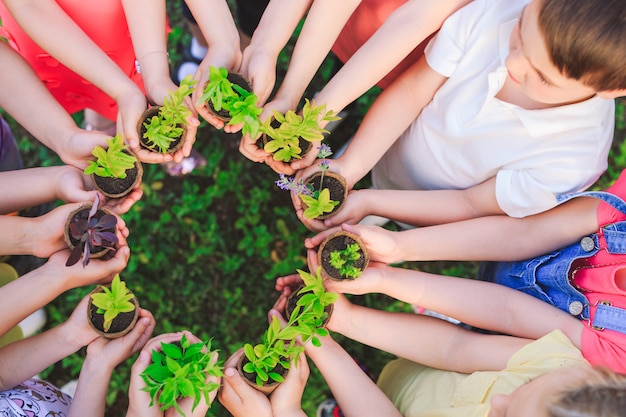Is Vacation bad for planet?
Travel is a good thing. But, in the rush to get people to travel, we often overlook the negative impact of travel has on communities and the environment. We talk about how travel can be a force for good: breaking down social barriers, connecting people, teaching people about life, but we often overlook the bad. Balancing preservation of the land with our desire to travel is a challenge not just for us travelers but for the localities we visit.
Back in my youth, I was less environmentally conscious. I leave the lights on. I drink out of plastic bottles. I eat a lot of meat. And I love fish, especially tuna. However, over the last year, I’ve begun thinking harder about how environment is getting affected and how I affect the environment. In doing so, I’ve tried to be a lot more aware of my actions.

However, in the larger context, I’ve come to realize that travel is not the most environmentally friendly activity. And though sustainable travel and the environment have become hot topics over the last few years, for the most part things haven’t changed much.
- Take, for example, Thailand. The Asian tsunami was a huge human tragedy, but if there was any good to come out of it, it was the fact that it gave a country like Thailand a clean slate to rebuild upon. With everything wiped away, officials promised a new start: an end to pollution, dirty beaches, and polluted water. There was a lot of talk about how they would focus on sustainable tourism and how they would build within the confines of the environment and think long-term.
But it never happened. Talk became simply talk. When the huge amount of tourism dollars were looked at, the long term didn’t matter. It was back to the way it was before. Now, the area is built up even more than before. And the tourists never seem to be too bothered by it. - Take another example, In India, the Rohtang-Pass carbon-monoxide crisis which led to massive melting of snow and blackening in the area nearby. All this due to an unchecked number of vehicles impounding Rohtang-Pass by the ever enthusiastic bike riders and cars. The vehicles emit Carbon-monoxide in heavy amounts and it impacted the pass so heavily that the National Green Tribunal had to pass a ban order for sometime on the vehicles coming. This was a clear manmade disaster and a direct example of how tourism affects environment. It is up to the travelers and the local authorities to keep the environment in balance and peaceful in order to make it enjoyable.
So, from the above two example, Should everyone stop travelling? I don’t think so. There are hundreds of places around the world which rely on tourism. There are industries built around it. If everyone decided to stop travelling, economies would collapse. Millions of people would lose their jobs. Someone told me long ago that, Travelling is not a right. It’s a privilege. It’s a privilege many people in the world don’t get to enjoy and with all privileges come responsibilities. I consider travelling to be one of the most enjoyable and rewarding thing you can do in life. I believe there’s an entire globe out there filled with wonderful things to see. I firmly believe that if everyone was able to travel, the world would be a more open minded place.
The High-level solution is that there is an overwhelmingly larger and more important change that needs to come about, in the form of legislation at a national and international level. To put it bluntly, until our governments create legislation (laws, considered collectively) to protect the natural world and then robustly enforce this legislation, I don’t believe a great deal of change will come about. Many politicians have close ties to major corporations, and those corporations prioritize profits over environmental concerns, which mean that politicians tend to do the same thing. So until such time as we have politicians in power who actually care about the environment and are prepared to take steps to protect it (and who won’t be influenced by multi-national corporations), I don’t believe we’ll bring about lasting change. In addition, there is also the threat that any good things accomplished by one leader could be reversed by the next one that comes into power (e.g. Obama signing up to the Paris accord, followed by Trump pulling out).
Conclusion:
I don’t know if there is an easy solution for this problem. The most environmentally friendly activity is to not travel at all, but that’s unrealistic and too extreme. There’s so much money in travel that I don’t think the government and regulation can do much. Only when their profits are hurt will hotels, operators, and the industry as a whole begin to listen. Instead, it’s all about the consumers. The only good way is to get people to be more environmentally conscious and make better decisions. Consumers have a lot of power. Why Patanjali started selling only organic and eco-friendly products? Consumers wanted it. I think if we as travelers begin to demand more environmentally friendly practices and avoid companies with poor environmental records, we can change things. In fact, there is something called "Eco-Tourism".
After all, most countries, especially those that rely heavily on tourism, cater to tourists. They bend over backwards to make sure visitors are happy and safe. If tourists begin demanding something loudly enough, they will get it. There’s too much money at stake to ignore the group of people bringing in that money.
Now that I’m older and wise, I recycle more, I use fewer water bottles, I shut off the lights, I pick up my trash, and in national parks, I even pick up the trash I find left behind. I try to avoid big resorts. I don’t drive; I take public transportation. And I try to eat local cuisine when I can. Most importantly, I use operators and stay at places that are reducing their environmental impact. Travel doesn’t have to be environmentally destructive. Travel can destroy the environment but it doesn’t have to. We have the power to make things better. We can do small things and demand more of the places we stay and visit. We can and should demand more of places, and of ourselves.

“Because once a place is gone, it is gone for good.”


Comments
Post a Comment